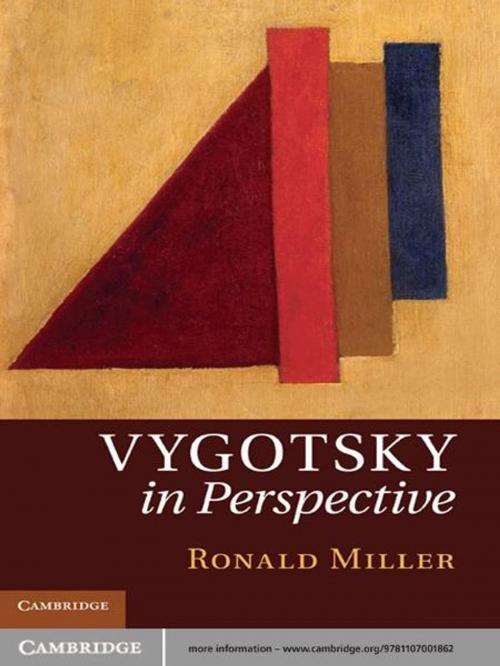Vygotsky in Perspective
Nonfiction, Reference & Language, Education & Teaching, Health & Well Being, Psychology, Social & Cultural Studies, Social Science| Author: | Ronald Miller | ISBN: | 9781139063630 |
| Publisher: | Cambridge University Press | Publication: | April 14, 2011 |
| Imprint: | Cambridge University Press | Language: | English |
| Author: | Ronald Miller |
| ISBN: | 9781139063630 |
| Publisher: | Cambridge University Press |
| Publication: | April 14, 2011 |
| Imprint: | Cambridge University Press |
| Language: | English |
Lev Vygotsky has acquired the status of one of the grand masters in psychology. Following the English translation and publication of his Collected Works there has been a new wave of interest in Vygotsky, accompanied by a burgeoning of secondary literature. Ronald Miller argues that Vygotsky is increasingly being 'read' and understood through secondary sources and that scholars have claimed Vygotsky as the foundational figure for their own theories, eliminating his most distinctive contributions and distorting his theories. Miller peels away the accumulated layers of commentary to provide a clearer understanding of how Vygotsky built and developed his arguments. In an in-depth analysis of the last three chapters of Vygotsky's book Thinking and Speech, Miller provides a critical interpretation of the core theoretical concepts that constitute Vygotsky's cultural-historical theory, including the development of concepts, mediation, the zone of proximal development, conscious awareness, inner speech, word meaning and consciousness.
Lev Vygotsky has acquired the status of one of the grand masters in psychology. Following the English translation and publication of his Collected Works there has been a new wave of interest in Vygotsky, accompanied by a burgeoning of secondary literature. Ronald Miller argues that Vygotsky is increasingly being 'read' and understood through secondary sources and that scholars have claimed Vygotsky as the foundational figure for their own theories, eliminating his most distinctive contributions and distorting his theories. Miller peels away the accumulated layers of commentary to provide a clearer understanding of how Vygotsky built and developed his arguments. In an in-depth analysis of the last three chapters of Vygotsky's book Thinking and Speech, Miller provides a critical interpretation of the core theoretical concepts that constitute Vygotsky's cultural-historical theory, including the development of concepts, mediation, the zone of proximal development, conscious awareness, inner speech, word meaning and consciousness.















